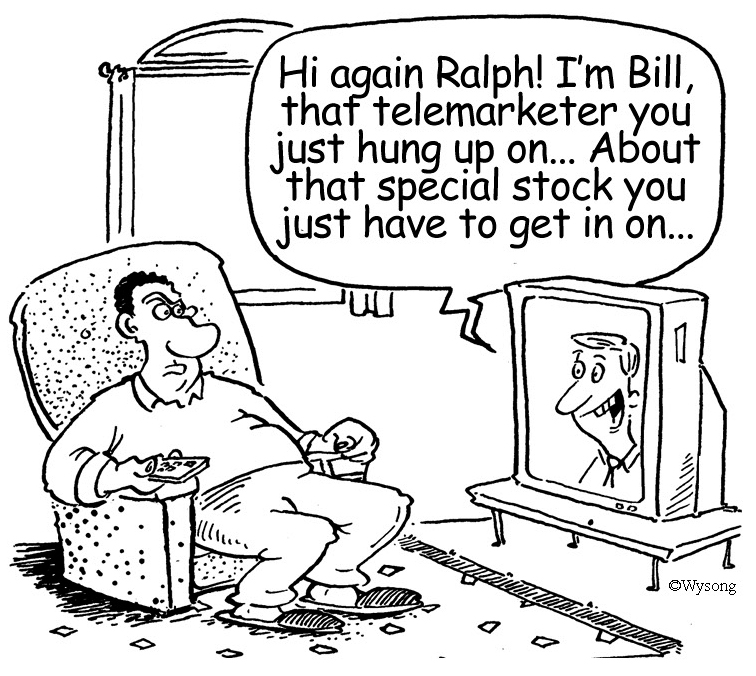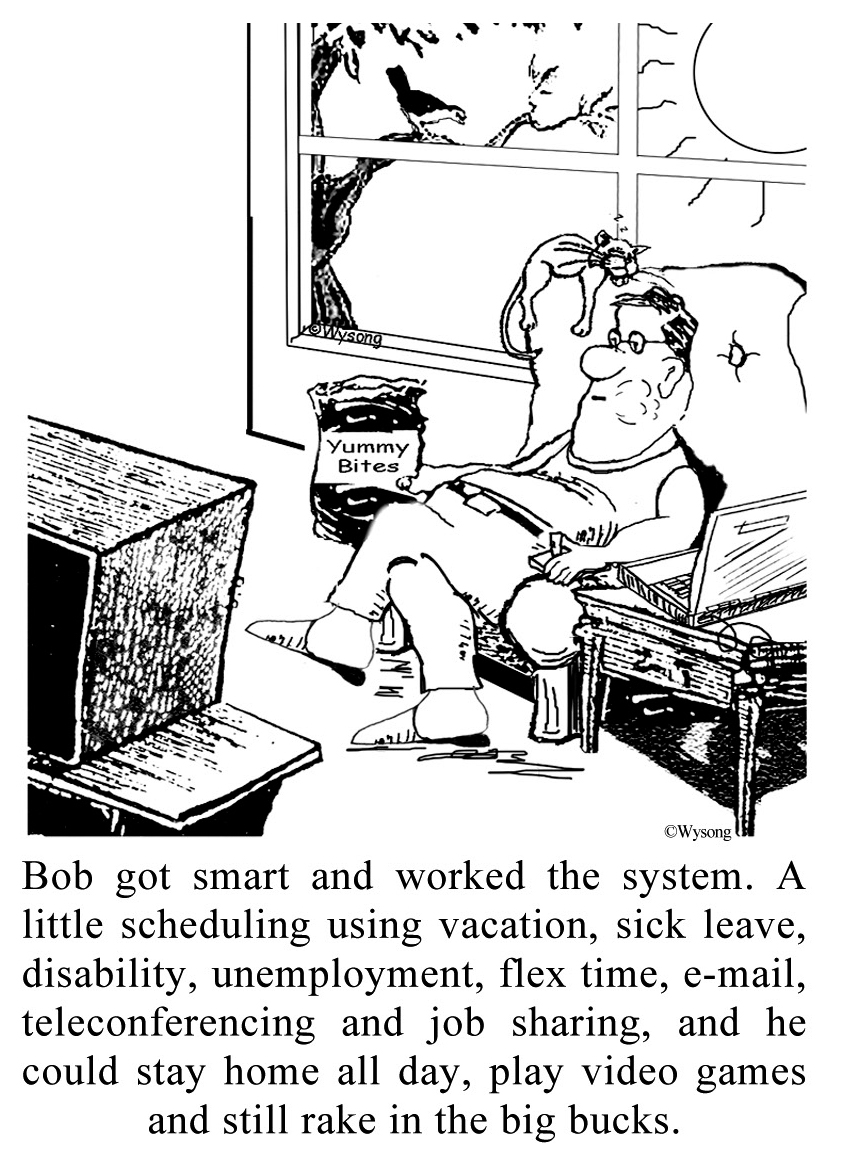Words of wisdom and miscellaneous facts by Dr. Wysong and others.
This is an accumulation over several decades and the accuracy cannot be attested to.
Wysong vs Nemos Bible Debate
COSMOLOGY LIES AS BIG AS THE UNIVERSE
⬇️ Click to scroll down to article
"We'll know our disinformation program is complete when everything the American public believes is false."
—William Casey CIA director 1981
The bigger the lie the greater its acceptance because people cannot believe authority figures would ignore reality.
To find truth we must hate the lie more than love accepted beliefs.
Fraud vitiates everything it touches. (common law maxim) Nudd v. Burrows (1875) 91 U.S. 416.
Fraud destroys the validity of everything into which it enters. Boyce's Executors v. Grundy (1830) 28 U.S. 210.
Fraud vitiates the most solemn contracts, documents and even judgments. United States v. Throckmorton (1878) 98 JU.S. 61.70.
FORWARD
The accepted cosmogony/cosmology (origin and nature of the universe) belief is:
—William Casey CIA director 1981
The bigger the lie the greater its acceptance because people cannot believe authority figures would ignore reality.
To find truth we must hate the lie more than love accepted beliefs.
Fraud vitiates everything it touches. (common law maxim) Nudd v. Burrows (1875) 91 U.S. 416.
Fraud destroys the validity of everything into which it enters. Boyce's Executors v. Grundy (1830) 28 U.S. 210.
Fraud vitiates the most solemn contracts, documents and even judgments. United States v. Throckmorton (1878) 98 JU.S. 61.70.
FORWARD
The accepted cosmogony/cosmology (origin and nature of the universe) belief is:
A Big Bang of nothing created an infinite meaningless universe containing atomic dust that gravitationally accreted into heavenly bodies including our Earthball moving in several different directions at 2.8 million mph and holding an atmosphere next to the vacuum of space while spontaneously forming life from primeval sludge that then evolved into complicated rocks called humans with no free will.
Long ago it became clear to me that the materialistic evolutionary part of that credo was false.
But I was on board with the cosmology part. After all, we see rocket ships going to and fro, there is a "Space Force," pictures of Earth and planets abound, astronauts float around and in the International Space Station, thousands of people and billions of dollars support it, and, of course, "all" the experts believe.
To question this is to be a conspiracy theorist, misinformationist, or even a lunatic. Oh my, we must, after all, follow the crowd.
The idea that we are being lied to about space didn't even enter my mind until a few months ago when what was left of my naive and trusting innocence had been totally demolished with the COVID-19 fraud.
We, the crowd, extend our trust to institutions charged with looking after our interests. But government, Big Medicine, education, media, industry, Big Tech, science, and NASA chase money, their own security, and even power over us.
That should not inspire confidence in beliefs they create, promote, protect with censorship, and even demand acceptance of.
If we want truth, we have to find it ourselves. To do that requires the opposite of trusting in others. It means sleuthing what the powers that be try to hide from us in internet archives, banned videos, censored "disinformation," and what "fact checkers" say isn't so.
Probing into the subject I was stunned to learn that:
That means unproven beliefs, stories, and even fakery are being passed off as science and truth.
This subject may seem inconsequential to everyday life. But that's only true if we aren't being lied to about it. If the truth is being hidden from us, we can be sure of one thing, it's not being done for our benefit.
Truth seekers learn that the scale and ostentatiousness of lies being fed to us means nothing can be tacitly trusted.
Everything of importance from government, media, industry, medicine, education, economics, science, history, religion, and popular society must be assumed to be false unless we prove otherwise by doing our homework and thinking critically.
This series will provide wake-up information to help you discover lies as big as the universe.
But I was on board with the cosmology part. After all, we see rocket ships going to and fro, there is a "Space Force," pictures of Earth and planets abound, astronauts float around and in the International Space Station, thousands of people and billions of dollars support it, and, of course, "all" the experts believe.
To question this is to be a conspiracy theorist, misinformationist, or even a lunatic. Oh my, we must, after all, follow the crowd.
The idea that we are being lied to about space didn't even enter my mind until a few months ago when what was left of my naive and trusting innocence had been totally demolished with the COVID-19 fraud.
We, the crowd, extend our trust to institutions charged with looking after our interests. But government, Big Medicine, education, media, industry, Big Tech, science, and NASA chase money, their own security, and even power over us.
That should not inspire confidence in beliefs they create, promote, protect with censorship, and even demand acceptance of.
If we want truth, we have to find it ourselves. To do that requires the opposite of trusting in others. It means sleuthing what the powers that be try to hide from us in internet archives, banned videos, censored "disinformation," and what "fact checkers" say isn't so.
Probing into the subject I was stunned to learn that:
| Nobody, including any scientist, can prove any aspect of the approved cosmogony/cosmology belief using experimentation and the scientific method. |
That means unproven beliefs, stories, and even fakery are being passed off as science and truth.
This subject may seem inconsequential to everyday life. But that's only true if we aren't being lied to about it. If the truth is being hidden from us, we can be sure of one thing, it's not being done for our benefit.
Truth seekers learn that the scale and ostentatiousness of lies being fed to us means nothing can be tacitly trusted.
Everything of importance from government, media, industry, medicine, education, economics, science, history, religion, and popular society must be assumed to be false unless we prove otherwise by doing our homework and thinking critically.
This series will provide wake-up information to help you discover lies as big as the universe.
"We'll know our disinformation program is complete when everything the American public believes is false."—William Casey CIA director 1981
"We know they are lying, they know they are lying, they know we know they are lying, we know they know we know they are lying, but they are still lying."—Aleksandr Solzhenitsyn
"We know they are lying, they know they are lying, they know we know they are lying, we know they know we know they are lying, but they are still lying."—Aleksandr Solzhenitsyn
|
11/22/2019
Click to enlarge, Ctrl + to enlarge further; Ctrl 0 to return to 100%
It is everyone's personal responsibility to save sufficient money for future security. Nobody should place the burden of their care on government, family, or children. But, contrary to popular belief, getting to that point is not a matter of loaning and borrowing. Shakespeare wrote: "Neither a borrower nor a lender be; for loan oft loses both itself and friend, and borrowing dulls the edge of husbandry."
Nevertheless, borrowing has become standard practice. Note how many advertisements there are from banks, loan agencies, debt consolidation companies, credit score services, and attorneys who will help you declare personal bankruptcy (legally renege on all your debts) or help you get out of an IRS obligation for pennies on the dollar. All of this economic mismanagement subculture is spawned by people who insist on living beyond their means. Now about 50% of all earnings goes to service debt. As a result, the majority of people will end up outliving their assets. Saving should be hammered into children and practiced throughout one's work life. Saving is one thing, investing is quite another since it puts money in others' hands. Yes, there is that tantalizing prospect of having money create more money without having to do anything other than give someone money. The something for nothing carrot is usually a trap. Perhaps that's why those who invest our money are called brokers. Investing is gambling; it is just not stigmatized that way. Also, once the control of money is relinquished to another person, there is the very real concern about whether the money will be returned when it's asked for. Money is like glue in that it sticks to whoever has it. Its adhesion gets particularly aggressive when possessed by those who do not own it. Like a vast sea, money can drown truth, honor, and conscience. Certainly not everyone is dishonest. But that is never known until money is surrendered to another person. Then all bets are off. And don't think that our legal system and governmental controls will prevent an investing disaster or being outright defrauded. Even mainstream, publicly traded, governmentally scrutinized, blue chip company stock is risky. Bonds, futures markets, precious metals, bank debentures, oil and gas leases, and high yield investments are all gambles, other than for their sellers. If investing were a science, as it is often marketed—complete with impressive charts, graphs and mathematical formulas—then it is a science that would have long ago been used to drain the entire market.
Fair warning: if it seems too good to be true, it is. That is sage advice we have all heard countless times. But it is wise counsel nobody wants to heed until they are burned enough times to see its truth. You think that you could be the lucky one, that your situation is different, and that the people offering you the opportunity are honest and trustworthy. Then like a balloon loses air and a watermelon seed squirts from the fingers, you will lose your money.
The greatest responsibility faced with a nest egg is to keep it from being stolen or devalued. Just keeping money, not having it grow through clever investing, is the primary challenge. So before turning savings over to another, be skeptical, ask for proofs, take time, talk to references, see pressure and deadlines as a sign of scam, get it in writing, know the recourse if things go wrong, search the Internet forums, take more time to ponder, consult bankers (a very conservative voice), and listen to friends, family, and intuition, not greedy desires. Forget the stories about people getting rich quick. It won't happen to you. Banks are happy getting only a few percentage points on loans. Do you know more about investing than they do? Banks do everything they can to not gamble. Result? Banks flourish while get rich quick investors file for personal bankruptcy in unprecedented numbers. Companies and people succeed not because they gamble, but because of industry, frugality, and sound, conservative business and financial practices. Yes, people have struck gold in 'them there hills' but you will not be one of them. Persist in thinking in this way and all you will do is strike it rich for the vultures ever present to prey on you. Be careful and very conservative with hard-earned money. Getting money is like digging with a needle, spending or losing it is like water soaking in sand. Be content with security rather than dreaming of investment windfalls. Don't gamble with money needed for survival now or in the future. Also, try to be a productive person as long as you are physically able. You are your best investment. When all else can fail, your honest hard work is something that can always be banked on.¹ It is one thing to fulfill the responsibility for future security, but the ladder-climbing pursuit of money can be so distracting and consuming that we can come to believe that it in itself is life's purpose. Making our financial way in life by becoming self-sufficient and caring properly for our families is certainly one of life's most important responsibilities. Poverty and hand-to-mouth existence leave little room for moral development, healthy decisions, ethical concerns, or environmental stewardship. Saving trees, stopping pollution, doing cancer research, and protecting endangered species are not high on the priority list of a population that is starving and freezing.
Moreover, not properly caring for personal responsibilities shifts the load to society at large. This in turn plays into the hands of governments always eager to steal from others in order to dole out to you to save you from yourself and secure your vote. The end result is socialism, which ultimately destroys economies and lives. Without a free economic infrastructure, nations cannot have healthy commerce with other nations. Healthy international trade is the most effective impediment to war. Nations don't find it very beneficial to kill their customers.
We all have a financial responsibility to rise above poverty. But being fiscally sound is one thing, chasing an alluring pot of gold is another. Everyone can agree that being poor is not the place to be, but few understand that being fabulously wealthy may not be all it's cracked up to be, either. It would appear that the rich and famous, movie stars, and sports heroes have it all. But would we really want the responsibility of always being under public scrutiny, being perfect, managing mountains of money and possessions, and having no privacy? Not one of these icons, after having arrived, if they have anything other than a nub on top of their spinal cord, feels they have achieved life's purpose. The wisdom of all the great sages is that money is not life's answer. But people insist that they would like to prove to themselves that money does not bring happiness. So on to the money chasing treadmill they go, convinced that when magnate status is achieved all woes will end and happiness never known will surely appear—blossoming out of a mound of riches. It is a grand cultural illusion that the prestige, power, position, and goodies money can create bring happiness or meaning. Such things can be occupying, challenging, and fun for a time. However, money is unlike most other physical things. Like a child, it never just sits in a chair and behaves itself. Something is always happening. Even when we try to put it in a bank to go to sleep it is either losing or gaining value. The love of money may be the root of all evil, but the mere possession of it in excess can be the root of a whole lot of misery. Riches look like a beautiful present, but when the pretty packaging is unwrapped there is a list of burdensome chores. Because of the options it creates, money is a tremendous responsibility. It forces us to make choices. The more money, the more choices. Fine, you think. Making choices between models of Ferraris would be no problem whatsoever. But if one's whole life becomes a matter of constant choices, what fun is that? A Ferrari will not just sit there. It needs care, an ongoing stream of choices. Our imagination and the media present phantasmagoric images of idyllic lives in mansions, yachts, and limousines. But this is but a veneer of what life is really like for those who have to manage such onerous material monstrosities. Copious non-necessities can also nag the conscience. How is using up Earth's resources for superficial pleasures justified? We know there are philanthropic purposes the money could be better used for. Excess money (money beyond basic needs and that needed to secure future independence) is an opportunity to do good, not just lavish oneself. It is even arguable that personal use of money that squanders Earth's resources and is used for anything other than basic survival is immoral. However, if we listen to the inner voice and decide to give money away, we are faced with a big chore. How do we know the money is going to the target need or lining the pockets of con artists or 'administrators'? The graft that occurs in supposedly non-profit organizations is now well-known. But even the legitimate siphoning of funds in such organizations is astonishing. I formed a non-profit organization in part to try to ferret out organizations where donated money is efficiently used. We wrote queries to organizations that advertised that they helped victimized children, asking for an accounting of how donated money was used. Here are a couple of the results. One Christian organization was paying their president $360,000 per year. Another group had six "vice presidents" each making over $150,000 per year, and their president got $250,000. (Proving that although some people make counterfeit money, more frequently, money makes counterfeit people.) An interesting and satisfying life has to do with what we do, not what we have. Exploring, growing, and doing good are the things that are fun. The life of the 'rich and famous' is only wonderful from the outside looking in. Once a person has 'arrived,' it is an empty state of affairs unless he or she is busy being useful, active, creative, challenged, and helping others. If leading an interesting and engaging life is what fulfills us, then what is the point of all the obligating toys and ambience for leisure and sedentary living? As we look back on life, will a memory of a purchase or the memory of hard work and sacrifice be more fulfilling? Buying something is empty; it's something anyone can do. Accomplishing something is what life is really about. Few live life well in that regard. Perhaps the best advice is to try to die poor by using up the fruits of life in helping the true victims in society. Victims are those unable to change their bad circumstances, or who are not responsible for the hopeless situation they find themselves in. True victims are homeless and abused children and animals, the environment, and the legally or politically oppressed. Giving money to those who are not true victims only robs them of life's duty and greatest pleasure: taking responsibility for ourselves. Money is not all it's cracked up to be and certainly not a cause for envy. More appropriate would be a deep thankfulness, that oh, but for the grace of God, there we be. True wealth is taking responsibility for one's own life and knowing that we have enough. If you agree, disagree, have questions, or have a correction please let me know. Comment below or email me at [email protected]
Leave a Reply. Choose Any Name
Comments
|
Introduction
1. We Can Agree 2. Possibility Thinking 3. The Solver Principles 4. Our Owner's Manual 5. We Live in A Unique Time 6. Being Health Smart 7. The Illusion of Youth Health 8. The Good Old Days 9. Timing Life 10. Exercise 11. Hormones and Steroids - A Two-Edged Sword 12. The Female Hormone Problem 13. Growing Older 14. Squaring the Curve 15. Healthy Dos and Don'ts 16. The Medical Profession 17. The Greatest Threat to Health 18. Don't Surrender to Medical Care 19. But We Live Longer Today 20. Dollars Don't Make Health 21. Disease Does Not Strike Us 22. Germs Don't Cause Disease We Do 23. From Where Does Healing Come 24. The Best Food 25. Food Ethics 26. Healthy Weight 27. Healthy Eating Ideas 28. First Things First 29. Hopelessness 30. Depression 31. Memories 32. Addiction 33. Blaming the Parents 34. Surviving Tragedy 35. Touch 36. Music as Healer 37. Humor 38. Pets as Life Savers 39. Pet Keeping - A Serious Responsibility 40. The Myth of 100 Complete Pet Foods 41. Feeding Pets as Nature Intended 42. Industry vs. Earth 43. Population 44. Modernity's Deception 45. Animal Rights 46. Biophilia 47. Respect for All Life 48. Doing Good With Business 49. The Global Economy 50. The Power of Money 51. Financial Affairs 52. Work as Friend 53. Government 54. The End of Civilization 55. Freedom Is Not Equality 56. Sex 57. Being in Love 58. Marriage - The Union of Opposites 59. Divorce 60. The Family Nest 61. Having Babies 62. Children 63. The Empty Nest 64. Experience 65. Education 66. Life Is Uncertain 67. Things Mound Up 68. Murphy's Law 69. Life's Predictability 70. Finding Home 71. Learn From History 72. Shaping the Future 73. The Other Line Always Moves Faster 74. Little Things Add Up 75. Growing Up 76. Alone 77. Hope 78. Paying the Success Price 79. Change A Wonderful Thing 80. Being the Best You Can Be 81. Do Something, Something Happens 82. Change the World 83. Growing Good People 84. Words 85. Genius 86. Listen and Learn 87. Mind Over Matter 88. Looking Good 89. Protecting Yourself 90. Self Sufficiency 91. Life Is Math 92. Ethics 93. Conscience 94. The Long View 95. Being Real 96. Change 97. End and Beginning Figures |


 YouTube
YouTube Podcast
Podcast



 RSS Feed
RSS Feed
 Twitter
Twitter
0 Comments